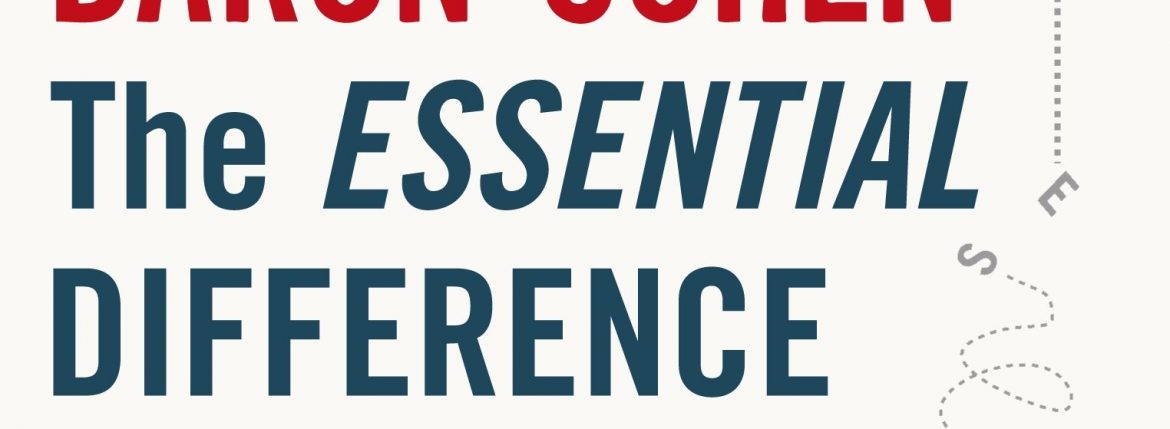
The Essential Difference: Men, Women and the Extreme Male Brain, Simon Baron-Cohen
Under the guise of “gender equality”, policy makers often introduce quota systems whereby men and boys are discriminated against as a result of a desire to increase the participation of women and girls in fields that are seen as both highly desirable and male dominated, for example politics, company boardrooms and the STEM (Science, Technology, Engineering and Mathematics) sector.
The justification used for these policies is that the differences in outcomes between men and women is purely down to social construction e.g. girls are put off from Science because it’s seen as a male pursuit, therefore, in order to address this imbalance, social engineering is required to encourage more girls into these kinds of career.
In this book, respected psychologist, and brother of famous comedian Sasha Baron-Cohen, discusses the aggregate observable behavioural differences between males and females.
He claims that men tend to have brains that are more Systematic and that females tend to have brains more suited for Empathy, which could perhaps be the reason for the typically different choices men and women make when it comes to careers and general lifestyle priorities.
Whilst he does not deny that social influence plays its part, his team have observed a number of experiments that demonstrate that biology does play a big part in sex differences, therefore discriminatory social policies should not be considered desirable.
For example, he describes an experiment where one day old babies were shown a face and a baby mobile. The researchers observed the amount of time each baby looked at either of the two objects. They found that boys tended to spend more time focusing on the mobile, and girls tended to spend more time focusing on the face. The researchers measuring the reactions of the babies did not know the sex of the babies until after the results, therefore this could not have been the result of an expectation bias and at one day old, the babies could not yet have learnt this behaviour from their environment.
In another example, female rats were injected with testosterone and male rats were castrated at birth. The female rats with testosterone displayed better spatial awareness compared with their peers and the opposite was true for the castrated males. This demonstrates the powerful role hormones have on brain development, with females having better developed left hemispheres of the brain, and males having more developed right hemispheres.
The importance of pre-natal testosterone personality was also evident when the professor looked at children whose mothers opted for Down syndrome screening during pregnancy. This screening involved taking samples of amniotic fluid from the first trimester of pregnancy. The babies were followed up and those that had lower levels of testosterone in their amniotic fluid had a larger vocabulary and more eye contact than those with greater testosterone exposure.
This is just a short sample of the invaluable research that has been carried out by Simon Baron-Cohen’s team and the book is also a useful primer into the ideas behind Evolutionary Psychology, a hypothesis that applies Darwin’s theory of evolution to behavioural characteristics between the two sexes.
I would highly recommend this book to anyone interested in the science of sex differences, it is invaluable to be armed with this information when it comes to debating the ills of social policies in the current political climate.